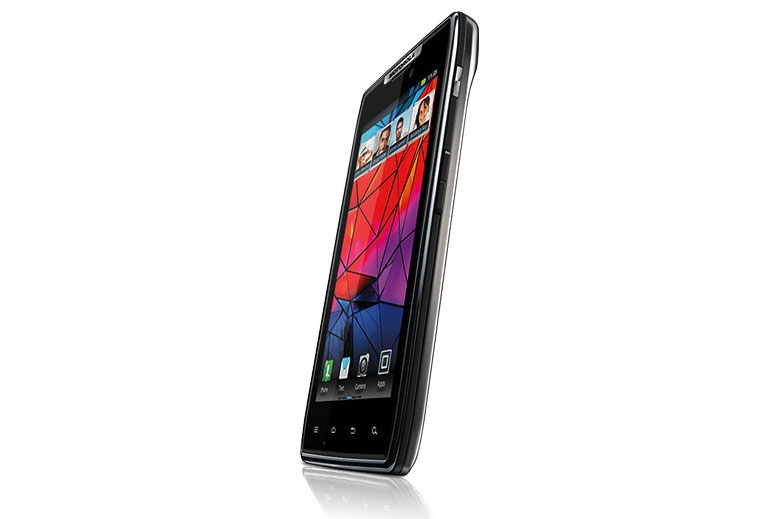Motorola Razr review
Motorola has resurrected the venerable Razr name for its new ultra-thin Android smartphone, but is the company on the bleeding edge or trading on past glories? Julian Prokaza finds out in our review.
The Motorola RAZR has all the makings of a great Android smartphone, but the middling quality of its big-screen is a let-down and the imminent Galaxy Nexus looks like it could be a better option. For now, the Samsung Galaxy S II is still our favoured Android smartphone, despite its smaller screen.

The RAZR's multitouch screen is very bright with excellent contrast.
Since it uses AMOLED technology, the RAZR's multitouch screen is very bright with excellent contrast, but it isn't as dazzling, or as super-saturated, as the similarly equipped Samsung Galaxy S II. That does mean that the photographic images it displays look a little more natural though, which is no bad thing. Unfortunately, the same can't be said of the way the RAZR displays text, since Motorola has followed Nokia's lead in fitting a sub-par PenTile matrix screen to its premium smartphone.
PenTile matrix display technology skimps on RGB sub-pixels to reduce screen manufacturing costs, which in turn reduces the actual pixel count. So, while the RAZR is reckoned to pack an impressively high 540 x 960 resolution display, the actual total subpixel count is one-third less than those numbers suggest and it shows. Text on the Motorola RAZR screen has the same slightly fuzzy appearance as on the Nokia Lumia 800 and while the effect in Android isn't as pronounced as with the text-heavy UI of Windows Phone 7, it's enough to distract.
Sign up today and you will receive a free copy of our Future Focus 2025 report - the leading guidance on AI, cybersecurity and other IT challenges as per 700+ senior executives
-
 AWS CEO Matt Garman isn’t convinced AI spells doom for the software industry – but admits providers will “have to innovate” to stay afloat
AWS CEO Matt Garman isn’t convinced AI spells doom for the software industry – but admits providers will “have to innovate” to stay afloatNews Software stocks have taken a beating in recent weeks, but AWS CEO Matt Garman has joined Nvidia's Jensen Huang and Databricks CEO Ali Ghodsi in pouring cold water on the AI-fueled hysteria.
By Ross Kelly Published
-
 Fake North Korean IT workers are rampant on LinkedIn – security experts warn operatives are stealing profiles to apply for jobs and infiltrate firms
Fake North Korean IT workers are rampant on LinkedIn – security experts warn operatives are stealing profiles to apply for jobs and infiltrate firmsNews The scammers' latest efforts mark a significant escalation in tactics, experts have warned
By Emma Woollacott Published
-
 Kyndryl wants to help enterprises keep AI agents in line – and avoid costly compliance blunders
Kyndryl wants to help enterprises keep AI agents in line – and avoid costly compliance blundersNews Controls become machine‑readable policies that AI agents can read and must obey
By Emma Woollacott Published